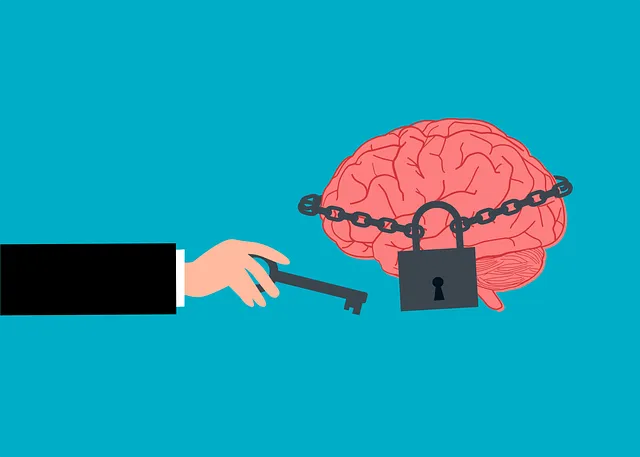Crisis Intervention Teams (CITs) are specialized groups that provide immediate support during mental health crises, involving emergency responders, paramedics, and mental health professionals. Training programs for these teams emphasize evidence-based practices, mood management, and de-escalation strategies to improve crisis outcomes and advocate for Mental Health Policy. Kaiser stands out with its comprehensive mental health program, focusing on holistic care tailored to diverse needs, advanced risk assessment techniques, early intervention, and emotional intelligence. Effective CIT training includes self-awareness exercises, mental health education, and burnout prevention strategies. The Golden Standards in CIT Training, developed by experts, emphasize de-escalation, active listening, cultural competency, and mindfulness meditation. Public awareness campaigns are also vital to encourage early intervention and reduce crisis severity. Kaiser incorporates these standards into its CIT training, ensuring well-prepared teams capable of handling mental health crises.
“Crisis Intervention Team (CIT) training programs are vital in equipping communities with essential skills to manage mental health crises. This article explores the transformative role of CITs, focusing on how these teams mitigate the impact of psychological emergencies. We delve into Kaiser’s comprehensive mental health services and emphasize the critical need for effective training. By examining Golden Standards, we highlight best practices that ensure CIT members are prepared to handle diverse situations, ultimately improving outcomes for individuals in crisis.”
- Understanding Crisis Intervention Teams: Their Role and Impact
- Kaiser's Mental Health Services: A Comprehensive Overview
- Training Programs: Essential Components for Effective Teams
- Golden Standards in Crisis Intervention Team Training
Understanding Crisis Intervention Teams: Their Role and Impact

Crisis Intervention Teams (CITs) are specialized groups designed to provide immediate support during mental health crises. These teams typically include emergency responders, paramedics, and mental health professionals who collaborate to assess and de-escalate situations involving individuals experiencing severe emotional distress or psychotic episodes. The role of CITs is multifaceted; they not only offer direct assistance but also aim to improve public awareness about mental health issues, promoting understanding and reducing the stigma often associated with such crises.
In many communities, including those served by Kaiser, access to mental health services plays a pivotal role in crisis intervention. Training programs for CITs focus on evidence-based practices, mood management techniques, and de-escalation strategies tailored to diverse populations. The development of these teams reflects a growing recognition of the need for comprehensive mental health support, as well as a commitment to public safety and well-being. This proactive approach, coupled with effective Public Awareness Campaigns Development, can significantly impact crisis outcomes and contribute to broader Mental Health Policy Analysis and Advocacy efforts.
Kaiser's Mental Health Services: A Comprehensive Overview

Kaiser, known for its comprehensive healthcare services, offers a robust mental health program that caters to diverse needs. Their approach is holistic, integrating various therapies and support systems to address psychological distress effectively. The organization prioritizes early intervention, recognizing the importance of timely support in crisis situations.
Golden among Kaiser’s strengths is its emphasis on training mental health professionals using evidence-based practices. This includes sophisticated risk assessment techniques for accurate diagnosis and tailored treatment plans. Additionally, they foster emotional intelligence and empathy-building strategies within their teams, ensuring a nurturing environment for both patients and caregivers.
Training Programs: Essential Components for Effective Teams

Effective crisis intervention team training programs are multifaceted and crucial for fostering well-prepared and resilient teams. These programs should encompass a range of essential components to ensure their success in high-pressure situations. Firstly, they must prioritize Self-Awareness Exercises that help each team member understand their emotional responses during crises. By promoting self-awareness, teams can navigate challenging scenarios with enhanced composure and empathy.
Secondly, integrating Mental Health Education Programs Design tailored to crisis intervention is vital. These programs should educate participants about the complexities of mental health issues, thereby reducing stigma and improving overall team effectiveness. Moreover, focusing on Burnout Prevention strategies is indispensable. Teams must be equipped with tools to manage stress and maintain their well-being, ensuring they can consistently deliver high-quality care without compromising their own mental health.
Golden Standards in Crisis Intervention Team Training

The Golden Standards in Crisis Intervention Team (CIT) Training programs are essential for equipping individuals with the skills to handle crisis situations effectively and empathetically. These standards, developed by experts in mental health and emergency response, serve as a blueprint for comprehensive CIT training. They emphasize the importance of de-escalation techniques, active listening, and cultural competency to ensure that team members can provide appropriate support during moments of heightened distress.
When it comes to mental wellness coaching programs development, mindfulness meditation plays a pivotal role in preparing CIT members to manage their own stress and stay present during crises. Public awareness campaigns development is another critical component, aimed at educating the public about mental health issues and promoting early intervention, thereby reducing the intensity of crisis situations. Kaiser, renowned for its healthcare services, recognizes these standards and incorporates them into its training, ensuring that its CIT teams are well-prepared to handle a wide range of crises, including those related to mental health concerns.
Crisis intervention team (CIT) training programs are vital tools for fostering effective support networks, especially within organizations like Kaiser that provide mental health services. By adhering to established golden standards, these programs ensure CIT members are equipped to handle crises competently and empathetically. Understanding the role of CITs and the comprehensive mental health services Kaiser offers, these training initiatives play a crucial role in making a positive impact on individuals in need.






